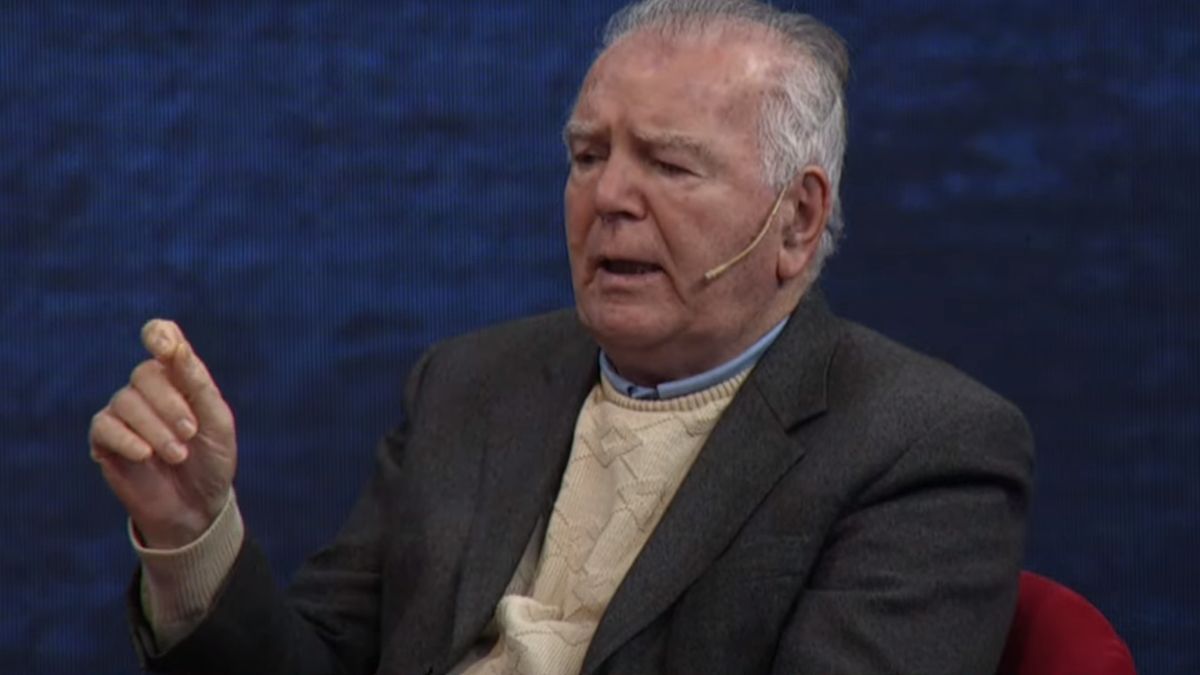The owner of the consulting firm that bears his name, Orlando Ferreres & Associatesspoke tonight with the program Minute One of Gustavo Sylvestre which is issued by C5N Regarding the exchange rate volatility recorded in recent days, following the announcement by the Minister of Economy, Luis Caputo, on BCRA debt, and reaffirmed its parallelism with the Bonex plan.
“The announcement on Friday did not convey the message very well and that a meeting with bankers was being sought. When we saw the bond and stock markets falling, we looked to the past for one thing similar to what Erman González did with the Bonex plan“It was similar to that, I’m not saying it was the same because this one is more voluntary and the deadline is shorter,” he said.
Despite having received criticism from President Javier Milei for his comparison, the economist insisted on his analogy: “It is a transfer of debt from the BCRA to the Treasury. It is the same thing that Erman González did with the Bonex 89 in 1990. That caused a fall in the markets, the stock market and a rise in free-trade dollars. The same thing we saw now. But now it has calmed down a bit.”
For Ferreres, there will not be a “rapid economic recovery as Caputo says”
He then spoke about the implementation of the economic programme. “The fiscal and monetary aspects are fine, but the social aspects are failing”Ferreres said, because “real wages are falling sharply, both for formal and public employees, and especially for informal workers, which fell by 29.5% compared to the same month last year.”
He deterioration in income of the population is causing “a fall in consumption and therefore a recession very large industry, construction and commerce”, which is barely offset by the better performance of the countryside, after the deep drought of 2023.
For Ferreres, The decline in activity is leading to “a very big recession”which, according to the calculations of your consultancy, “will be around 4% by the end of the year.” How will it improve between now and the end of the year? “Very slowly,” the economist said.against the minister’s forecast. “It will improve, but not as fast as Caputo says, in a V-shape, but rather the apex will continue to be flat,” he said.
Explaining the reasons for the slow recovery, the economist argued: “It will not recover as quickly because a significant increase in salaries and pensions is not expected.”
Regarding employment, he said that layoffs will continue to increase. “We are seeing unemployment rise to 7.7%, obviously because there is no investment, which is what is lacking,” he said.
Orlando Ferreres’ forecast on the lifting of the restrictions
The arrival of external assets is delayed, despite the approval of the Bases law, one of the pillars on which the Government stood to predict a recovery. For Ferreres, “There will be no investments until the restrictions are lifted. Now there are different exchange rates, there are import duties and PAIS tax.”
The elimination of exchange restrictions is one of the market’s demands. There are those who claim that the fall in bonds and stocks and the rise in informal dollars were also due to the fact that Caputo ruled out an uprising stocks after the sanction of the Bases law, but it would come later.
“I see the end of the cepo more towards the end of this year,” predicted Ferreres and reiterated that “for investment to grow there must be no restrictions.” Finally, he denied that the Government plans to implement a new devaluation: “I don’t think so. What they are trying to do is to reach an inflation rate similar to 2%, which is the monthly devaluation. If that were to happen, they could avoid the devaluation.”
Source: Ambito




